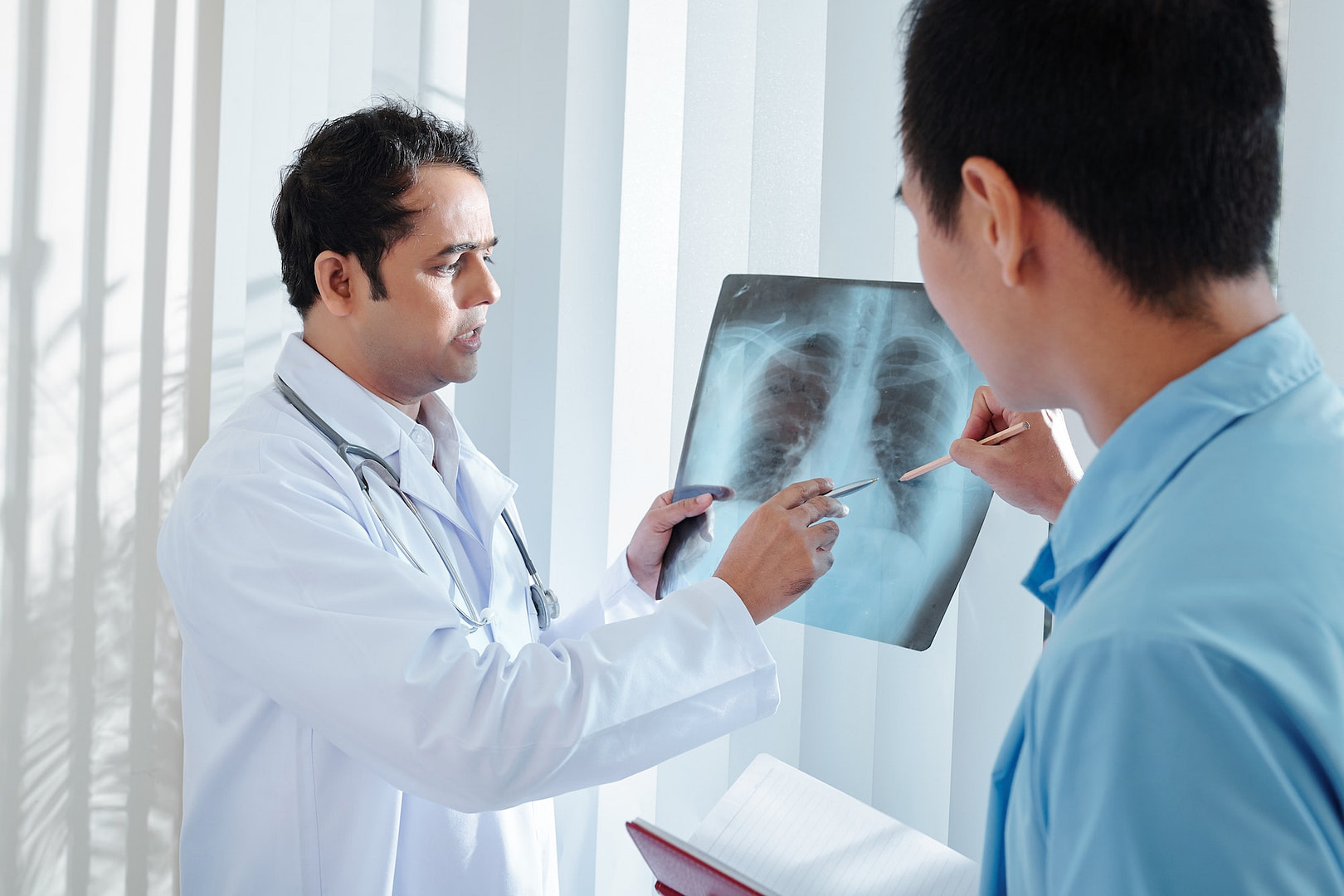- (310) 849 7991
- Info@HouseCallDoctorLA.com
- Available 24/7
Everyone has heard of pneumonia, and more than a million of us get treatment for it every year. Even so, many people don’t really understand what it is and may often think it’s just a very bad version of a cold or flu. In fact, it’s a lung infection that may often follow a cold or flu, and it is very much its own illness. While many cases are mild or only briefly debilitating, it can be extremely serious or even deadly when the sufferer is elderly, in poor health, a small child, or suffering from a weakened immune system.

Pneumonia can be caused by a virus, bacteria, or even a fungus in some cases. As most people know, it often follows a case of the flu or a cold. Sometimes, that might be because the virus has traveled into the lungs. However, very often bacteria can cause pneumonia and, confusingly, it often happens in people who have been weakened by a cold or flu previously. In all cases, however, medical treatment is called and everyone who thinks they have pneumonia should contact a doctor.
It can be confusing because many of the same symptoms may be present in flu or a very bad cold. The only exception is what it called “walking pneumonia,” where the symptoms may be a great deal milder. Symptoms that are common to pneumonia include bad coughs producing yellow of green mucus, pain in the chest or muscles, fever that may be as high as 105 degrees, chills and shivering, lips that appear to be turning blue and general lethargy or and feeling weak. Elderly people may also show signs of confusion. Symptoms in infants may be harder to spot. Again, it’s important to remember that, left untreated; pneumonia can be a life-threatening illness. Make an appointment with a health care professional as soon as possible.
The first step is for the doctor to determine the type of pneumonia, which may call for a sputum and/or a blood test as well as a chest x-ray. If the doctor determines the cause is bacterial, then antibiotics are the standard treatment. If the cause is viral, then antibiotics become a very bad idea. In viral cases, the treatment is the same as for a bad cold or the flu. Plenty of rest, fluids to help clear the body of excess mucus, and whatever over-the-counter medicines might help with the symptoms, including tussin type cough medicines and NSAID pain relievers such as Ibuprofen. In severe cases, hospitalization may be called for.
If symptoms get worse or you fail to improve over time, please call your doctor, as they may be a sign of a potentially serious complication.
Yes, though most of the steps are common sense steps you should be taking in any case. Specifically, these include influenza vaccines to lower the risk of a flu that can lead to pneumonia; frequent handwashing and overall good hygiene to limit your contact with disease-causing organisms; getting enough sleep, exercise, and eating a healthy diet to bolster your overall immunity. Also, your risk of pneumonia is significantly increased by smoking and excessive drinking. You already know those aren’t good for you, so stop. Finally, there are vaccines against certain strains of bacterial pneumonia which a doctor may prescribe in certain circumstances.
If you think your symptoms might be related to a case of pneumonia, don’t waste time before seeing a doctor. Dr. Michael Farzam and House Call Doctor Los Angeles can bring the treatment you need to your home, hotel, office, or just about anywhere else you happen to be. Thanks to high-technology, the doctor is able to perform most of the tests that patients need right at home.
If you have pneumonia or the flu, your body wants plenty of rest and relaxation – and you definitely won’t get that going through L.A. traffic! There’s a very good chance that the best solution for you is to contact us right away at the phone number above. You can also reach out through our contact page.
Doctor is usually at your location in one hour or less. Call for an appointment.
